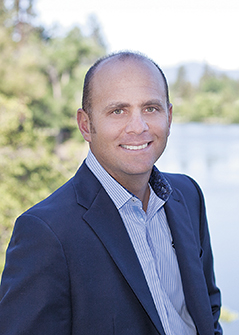Psychologists and economists and have been examining the links between income and happiness for decades. New research has given us a much deeper understanding of the relationship between what we earn and how we feel. As you might expect people with higher incomes are, generally speaking, happier than those who struggle to get by. However the findings get more unexpected as well as more practical. I will be the first to admit that it is satisfying to have some of the niceties of life. However, I also find myself pondering whether having more is better.
Does it truly bring greater happiness into our lives? Wealth alone doesn’t provide any guarantee of a good life. How people spend their money seems to matter more than how big their income is.
The paradox of money is that although earning more of it tends to enhance our well-being, we become happier by giving it away than by spending it on ourselves. I have always taught my kids that the more they give, the more that will get in their lives. This coincides appropriately with the latest research implying that being philanthropic makes people a lot happier than spending it on themselves. Economists analyzed survey data from 100 countries in the Gallup World Poll, and found that people who donated money to charity were happier, in poor and rich countries alike.
They determined the amount of happiness is not determined by the dollar amount you give but the perceived impact of your donation. If you can see your money making a difference in other people’s lives, it will make you happy even if the amount you gave was quite small.
This research also concluded that when people do spend money on themselves, they are a lot happier when they use it for experiences like travel than for material goods. Travel and exploration provide lasting enjoyment. It is not the money, but the way we use money that creates happiness. This resonates with me as my life has been shaped by a lifetime of international travel and adventure having had the opportunity to spend time in 65 countries on four continents over a decade in the 1990’s. It is life experiences that provide us with more lasting satisfaction and enjoyment of life. These experiences meet more of our underlying emotional needs as they’re often shared with other people, giving us a greater sense of connection.
My memories of trekking in Nepal, driving through the Australian Outback or tearing down the Berlin Wall- 25 years ago last month, are experiences I’ll always reminisce and talk about, long after my mountain bike and latest iPhone have surrendered.
And yet a vast majority of people prioritize the purchase of material goods over such adventures. It has been understood this is because experiences are short-lived and momentary as purchases last longer. Although people will indulge in a vacation to Sayulita or The Big Island or drop big bucks to experience Jack Johnson or Dave Mathews at the Les Schwab Amphitheater, when people are more mindful of money most will choose items over itineraries. Thomas Gilovich, a psychology professor at Cornell University has researched this very topic stating: “People often make a rational calculation: I have a limited amount of money, and I can either go there, or I can have this,” he says. “If I go there, it’ll be great, but it’ll be done in no time. If I buy this thing, at least I’ll always have it. That is factually true, but not psychologically true. We adapt to our material goods.”
Other studies have shown that debt has a detrimental effect on happiness, while saving money for retirement and overall financial security have a tendency to enhance it. So before you go out and spend all your money on an overseas adventure or dream vacation, make sure you’ve taken care of the basics, paid off your debts, and have enough money to protect yourself from the unexpected.
I observe people who must work harder and harder to support their acquisitions, which generates a great deal of stress in their lives. It is the western disease I call ‘More’ that makes it so hard to buy happiness through material purchases. My analogy is the young professional who works diligently to acquire his first luxury car; a beautiful BMW 325i. He is both proud and ecstatic for the first few weeks until he notices his co-worker driving the grander BMW 528.
After years and years of striving for and finally acquiring his latest goal – the most exclusive 7 Series, he never actually arrives as true inner happiness is still nowhere to be found. It is imperative that If you set a goal to acquire possessions, it is important to build a gap between the costs of servicing these acquisitions and the income we are earning.
Warren Buffett, widely regarded as one of the wealthiest and most successful investors in the world, says much the same thing. “The happiest people do not necessarily have the best things,” he asserts. “They simply appreciate the things they have.” Buffett still lives in the same three-bedroom house in mid-town Omaha that he bought after getting married 50 years ago. He says that he has everything he needs in that house, which is not walled or fenced in. He preaches that we shouldn’t buy more than what we really need. He drives his own car everywhere he goes, having forgone a driver and security people.
It can be a real challenge to slow down or get off the treadmill of ‘More’ once you’ve stepped on to it. One approach that can work is intentionally cultivate greater appreciation and gratitude for what you already have. This is certainly applies after celebrating my favorite holiday of Thanksgiving last week; a holiday focused on family, food and football rather than gifts and possessions. I believe gratitude is the first step to happiness and the indirect route to financial plenty, since it helps us to celebrate what we have rather than focusing on what we don’t. By focusing on what we’re grateful for, more of that very thing comes into our lives. This applies just as much to money as anything else.
To help me remember to be grateful, I carry a gratitude stone with me most of the time. I also offer gratitude stones to all my clients and to audiences who attend my speaking engagements. What is a gratitude stone, you ask? It is a small stone that you carry with you in your pocket or purse or leave on your desk at work. The idea is to put it in a place where you are likely to come in contact with it throughout your day. Each time you see or touch the stone, it will act as a small reminder to you to be grateful. I find this to be most beneficial during challenging times. Think of it as your tool to attract good thoughts.
In the morning as I get ready to leave for work, my thoughts are often already on my activities for the day. I put on my watch, grab my smart phone, wallet, car keys, and lastly my black onyx gratitude stone. It is my reminder to stop for just a brief moment and ask myself, “What am I thankful for at this moment?” It is amazing how that slows me down, grounds me and shifts my outlook. Each time I see or touch this ancient rock throughout the day, I’m reminded to be grateful for what I have today and for what will come tomorrow.
The holiday season is upon us. Set your goals high for 2015 and be grateful for the important things in life that you already possess. Enjoy your time with family and friends.
David Rosell is President of Rosell Wealth Management in Bend. He is the author of Failure is Not an Option- Creating Certainty in the Uncertainty of Retirement. You may learn more about his book at www.DavidRosell.com or Amazon.com. Ask for David’s book at Barnes & Noble and in Bend at Newport Market, Cafe Sintra, Bluebird Coffee Shop and Powell’s Books in Portland.
Investment advisory services offered through Rosell Wealth Management, a State Registered Investment Advisor. Securities offered through ValMark Securities, Inc. Member FINRA, SIPC 130 Springside Drive, Ste 300 Akron, Ohio 44333-2431. 800 765-5201. Rosell Wealth Management is a separate entity from ValMark Securities.






1 Comment
I worked most of my career in the field for Los Angeles The Department Of Water and Power as a Special Investigator. I was assigned to the “west side” (Bel Air, Beverly HIlls, Westwood…etc.), so I met a lot of customers who were very wealthy. With the exception of one celebrity, all impressed me as relaxed, easy going, and in a word “happy”.
I have never been financially strained, but I know that when my house was paid off, any residual financial concerns were of little consequence. From that point on, I have increased my volunteer efforts, and donated money, and computers to people who need them, but can’t afford to purchase them. It’s a good feeling, and it’s directly related to my financial well being, and the values my parents stressed.